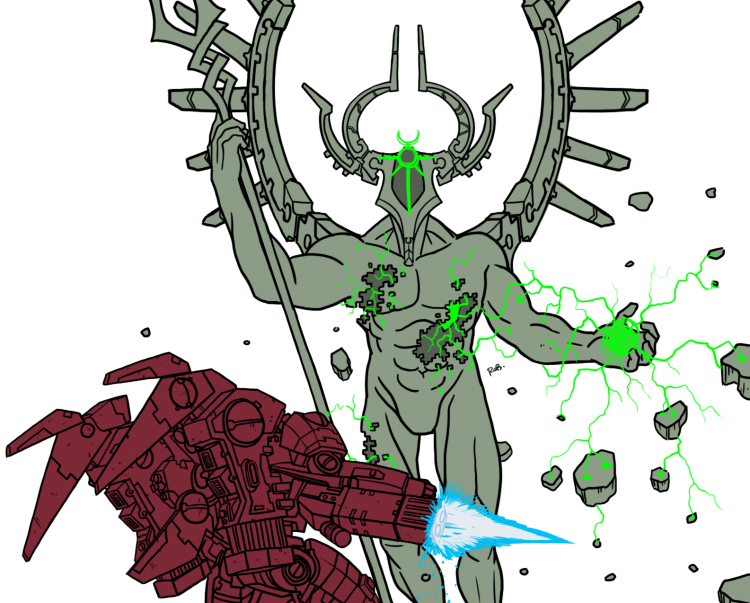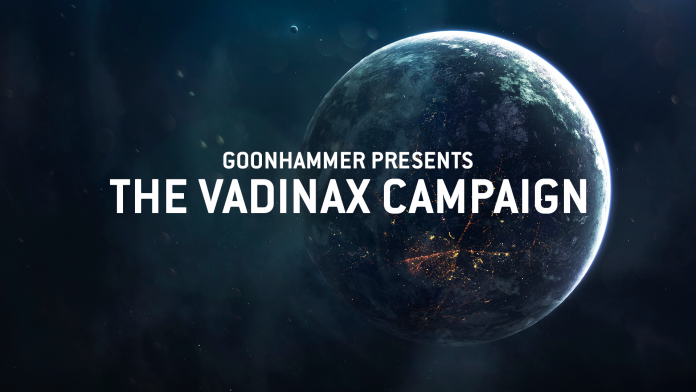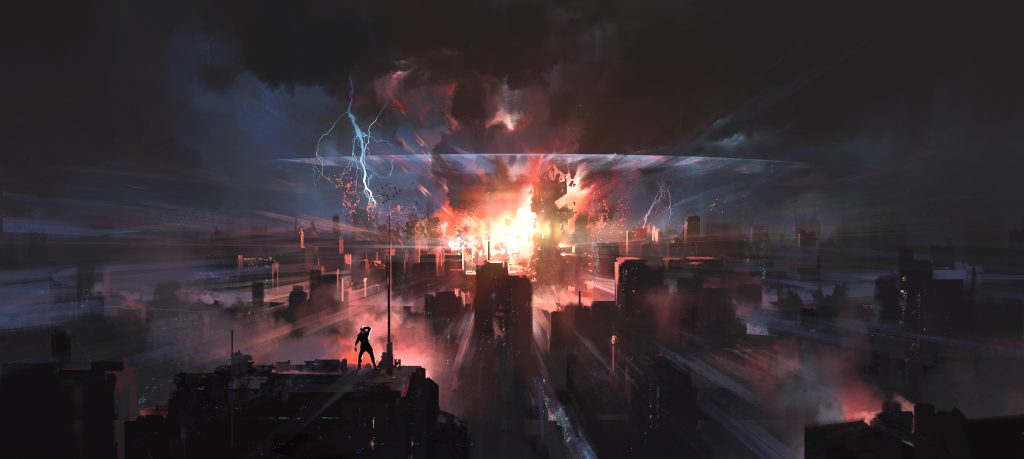Welcome back to our ongoing preview series about the Vadinax campaign. Last time around we talked about narratives in Vadinax and what it means to forge your own as you play in the campaign. Today we’re talking about some of the mechanics that are unique to the campaign, starting with Planetary Conquest.
Planetary Conquest
Like we said yesterday, the core mechanic at work in the Vadinax campaign is the planetary conquest mechanic. Each time you play a campaign game against an opponent – and only validated games count, so you’ll need an opponent who is also in the campaign – you’ll have the opportunity to tell us where the game was played, effectively marking the battlefifeld your victory was fought over. You and your opponent can either agree on this beforehand – and we’ll have some general battlezone guidelines for this – or you can just go ahead and let the victor decide where it was played.
Either way, once the battle is recorded, the result will have an immediate impact on the control over that territory or planet, changing its control values for each faction, typically adding to the winner’s faction control percentage and subtracting from the loser’s. That said, it isn’t as simple as wins translating to raw control – factors like planetary defenses, the size of the battle, the mission being played, how many games you’ve played recently, and even the support and morale of the local population may all factor into the impact of the victory. Careful players may be able to determine some of these factors over time and use this knowledge to their advantage!

Fate Points
Another mechanic we mentioned was Fate Points. Simply put, Fate points are the currency you use to advance your narrative. They’re earned by winning games – you get 1 Fate Point for your first win each week – and by completing key missions and objectives. Fate points have a variety of uses. They can be traded for XP at a rate of 1 Fate point per D3 XP on a unit, or traded for faction resource points like archaeotech, scrap, or damnation, or used to advance player or faction Narratives.
Narratives, as mentioned in the prior article, come in two major varieties: There’s the smaller type which individual players can pursue, such as trying to find and raid the ancient preserved genetic material on the Mendel or locating the hidden maiden world of Nal’Shara. And then there’s the larger type that entire factions can work toward, such as staging a Speedwaaagh, opening a warp rift, or orchestrating a Day of Ascension on a key planet.
Some of these narrative opportunities will be made available to players at the start of the campaign, while others will be revealed in time or as players accomplish key feats. And while Narratives are an important part of the global campaign, they may not be part of the local planetary campaigns – we’ve left that up to those local GMs.
Campaign Relics
What’s a Crusade without some sick, balance-destroying relics to fight over? There are plenty of ancient secrets in Vadinax, including special relics of devastating power. Should players uncover these, they’ll be able to put them to use but beware – should a champion wielding one of these fall in battle, they’ll drop the relic, where it may potentially be recovered by the enemy! And for those relics deemed too dangerous to let fall into enemy hands or too heretical to risk use, you can opt instead to destroy those, trading that ill-gotten power for Fate points.

Events
From time to time, we’ll be announcing events during the campaign. These may take several forms, such as:
- Bonus missions handed out by some of the colorful characters introduced in the Dramatis Personae. These represent key undertakings for a given faction and further the overall faction goals. Accomplishing these helps your faction, wins you fate points, and may have an outsized impact on planetary control.
- Megabattles are big battles that may take place in multiple locations, representing many armies taking part in the same, apocalyptic battle. These may swing the fate of an entire planet in a single weekend.
- Local Events like tournaments or store game days may also act as key narrative focal points, progressing the narrative and changing the fortune of the campaign’s factions.
- Timed Events may be ongoing events in the campaign that last for a period of time, usually a few weeks. These may work similar to bonus missions or may ask you to do other things to achieve some goal or reward.
Next Time: Faction Mechanics
That wraps up our look at the campaign mechanics but join us again on Monday when we take a look at the faction-specific mechanics we’ve designed and talk about some of the work we’ve done overhauling some of the less fun Crusade mechanics out there. Until then, if you have any questions or feedback, drop us a note in the comments below or email us at contact@goonhammer.com.



